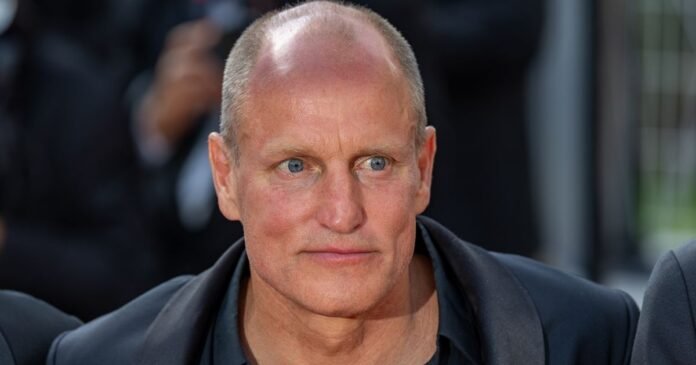Woody Harrelson, a renowned figure in Hollywood, has captivated audiences globally with his performances, starting from the iconic TV show Cheers to notable roles in films like White Men Can’t Jump, Natural Born Killers, and the Hunger Games series.
His father, Charles Harrelson, gained notoriety for a different reason. Charles, a well-known figure like his son, was convicted of two murders and acquitted of another, leading to a tumultuous reputation.
In a significant event in September 1980, Charles surrendered to law enforcement after a lengthy standoff fueled by cocaine intoxication, during which he made alarming statements, including claims of assassinating Judge John H. Wood Jr. and President John F. Kennedy.
Following his arrest, Charles Harrelson admitted that his statements during the standoff were an attempt to prolong his life, indicating a distressed mental state at the time.
The Texas State Historical Association documents Charles Harrelson’s conviction for the murder of Judge Wood, who was shot in a parking lot outside his San Antonio residence in May 1979. The judge, dubbed “Maximum John” for his strict sentencing in drug cases, was set to preside over a drug dealer’s trial.
Accusations arose that Jamiel “Jimmy” Alexander Chagra, a prominent drug dealer facing a severe sentence, had hired Charles Harrelson to eliminate Judge Wood for a substantial sum. Although Chagra was ultimately acquitted, he confessed to involvement in a conspiracy as part of a plea deal to assist his wife.
The assassination of Judge Wood marked a significant event as the first federal judge assassination in over a century, with Charles Harrelson and his then-wife implicated in the crime.
Charles Harrelson’s criminal activities were ultimately halted when authorities received reports of him firing a weapon at imaginary FBI agents under the influence of drugs, leading to his arrest based on an anonymous tip and incriminating conversations recorded between Joe Chagra and his brother Jimmy.
During the trial, Joe Chagra testified that Charles had claimed responsibility for the Kennedy assassination, but the FBI dismissed any links between Harrelson and the Kennedy case, contradicting his assertions.
In the book ‘Crossfire’ by Jim Marrs, theories suggesting Charles Harrelson’s involvement in the Kennedy assassination were explored, with claims that he may have been one of the “three tramps” arrested post-Kennedy’s death in Dallas, as indicated by forensic analysis.
Marrs also postulated connections between Charles Harrelson, intelligence agencies, and the military, linking him to Jack Ruby, who killed Lee Harvey Oswald, through an intermediary named Russell Douglas Matthews, known for his ties to organized crime.
In a 1982 interview with Dallas TV station KDFW-TV, Charles Harrelson questioned the narrative of Lee Harvey Oswald acting alone in the Kennedy assassination, implying potential involvement of a rogue U.S. government agency.
At Reach and its affiliated entities, cookies and device identifiers are utilized to enhance user experience, analyze site usage, and display personalized ads. Users can opt out of data sharing/sale by selecting the corresponding option on the website. By using the website and services, users consent to cookie usage and privacy practices outlined in the Privacy Notice and Cookie Policy.

